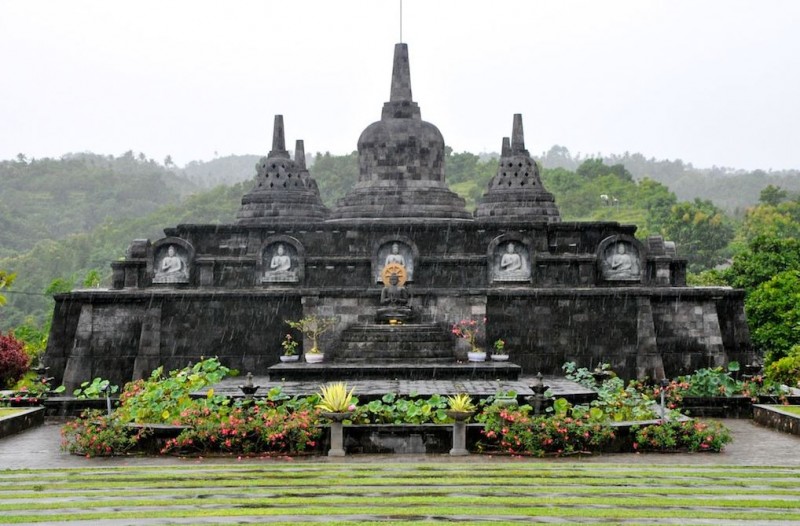
Brahma, one of the principal deities in Hinduism, holds a unique position in the religious pantheon. While revered as the creator of the universe, Brahma's worship is relatively limited compared to other major Hindu gods. This enigmatic phenomenon has sparked curiosity and debates among scholars and devotees alike. In this article, we will explore the reasons and historical context behind the mystery surrounding Brahma's limited worship.
1. The Birth of Brahma
In Hindu mythology, Brahma emerged from the cosmic egg and was entrusted with the task of creating the universe. As the first member of the holy trinity (Trimurti), which includes Vishnu and Shiva, Brahma's role is essential to maintaining cosmic balance.
2. The Four Heads and Vedic Scriptures
One of the most distinctive features of Brahma is his depiction with four heads. Each head represents a Veda - ancient sacred texts of Hinduism. However, the limited availability and understanding of the Vedas have contributed to Brahma's lesser worship, as the complexity of these scriptures makes them less accessible to the masses.
3. The Curse of Saraswati
Saraswati, the goddess of knowledge and arts, is the consort of Brahma. According to mythology, due to a series of events, Brahma's behavior was not in alignment with the divine principles. As a result, Saraswati cursed him, stating that he would not be widely worshiped.
4. Brahma's Rarity in Temples
Unlike temples dedicated to other major Hindu deities, temples exclusively devoted to Brahma are scarce. The most famous Brahma temple is located in Pushkar, Rajasthan, India. This scarcity of temples dedicated to the creator adds to the mystery of his limited worship.
5. Brahma's Role in Creation and Sustenance
Brahma's role as the creator is considered fulfilled once the universe comes into existence. After that, the responsibility of sustaining and preserving it lies with Lord Vishnu. This might be one of the reasons why devotees focus more on the worship of Vishnu rather than Brahma.
6. Controversies and Misinterpretations
Some ancient texts portray Brahma in a negative light, which has caused controversies and debates. These misinterpretations have possibly contributed to a decline in his popularity over the centuries.
7. The Emergence of Devotion to Vishnu and Shiva
Over time, Vaishnavism and Shaivism, sects dedicated to the worship of Vishnu and Shiva respectively, gained significant followings. The rise of these sects diminished the prominence of Brahma, further adding to the mystery surrounding his limited worship.
8. Lack of Iconography
Unlike other Hindu deities, Brahma's iconography is not as widely depicted in art and sculptures. This lack of visual representation may have affected the familiarity and appeal of Brahma among devotees.
9. Cultural and Regional Influences
The prominence of deities varies across different regions and cultures within the vast landscape of Hinduism. Brahma's limited worship could be attributed to regional preferences and cultural factors.
10. Mystical Concepts and Symbolism
Brahma is often associated with abstract and philosophical concepts rather than personal attributes. This level of mysticism might make it challenging for some devotees to connect with him on a personal level.
11. The Focus on Other Deities
In Hinduism, there is a vast array of deities, each representing different aspects of life. Devotees often turn to other gods and goddesses for fulfilling specific desires and needs, leaving Brahma with fewer worshipers.
12. Historical Events and Social Changes
Historical events and social changes throughout the centuries have influenced religious practices. Shifts in power, cultural exchanges, and invasions might have impacted the worship patterns, including that of Brahma.
13. The Concept of Cyclical Time
Hindu cosmology views time as cyclical, with the universe undergoing cycles of creation, sustenance, and dissolution. As Brahma's role is tied to the creation phase, his worship might be seen as less relevant during other phases.
14. Symbolic Importance
Despite the limited worship, Brahma remains a symbolic representation of the creative forces of the universe. Scholars and devotees value his significance in the cosmic order, even if his active worship is not as widespread.
15. The Mystique of the Unknown
Ultimately, the mystery surrounding Brahma's limited worship adds an aura of intrigue to his persona. This enigmatic aspect captures the imagination of those who delve deeper into the intricacies of Hindu theology.
Brahma, the enigmatic creator of the universe, stands apart as a deity with limited worship despite his crucial role in Hindu cosmology. The combination of factors such as curses, misinterpretations, the emergence of other sects, and a lack of widespread iconography has contributed to this intriguing phenomenon. Nevertheless, Brahma's symbolic importance and cosmic significance continue to fascinate and inspire those who seek to understand the divine intricacies of Hinduism.
Intrigue and Devotion: Understanding the Secretive Gods of Hindu Faith